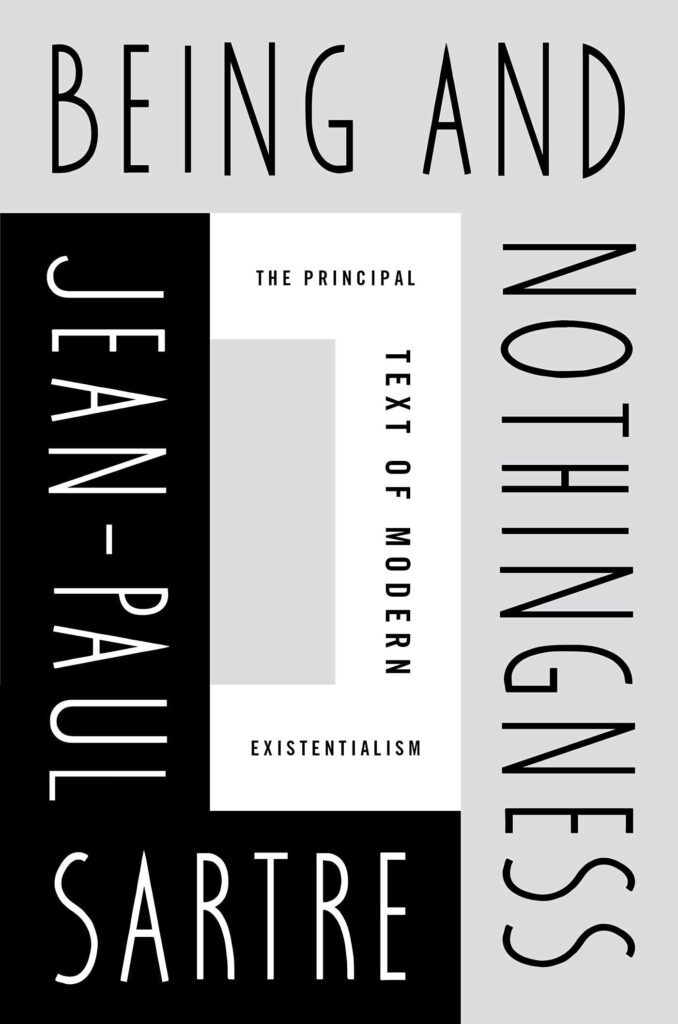
Being and Nothingness, an iconic work by Sartre, is well-known for its ground-breaking understanding of the complexities of human existence. It has been praised for its philosophical depth and its capacity to vividly and profoundly capture human experience. However, Sartre’s writings have practical applications as well and go beyond mere philosophy. For instance, Sartre’s idea of the dynamics of a relationship between two people is based on the fact that what each person lacks can be observed in daily life.
It is very difficult to understand Jean-Paul Sartre’s notion of Being and Nothingness. It conveys the idea that there is a middle ground where human identity and existence can be found. According to the theory, people are much more mysterious and complex than the sum of their parts. Sartre’s philosophy, which holds that being and nothingness are mutually exclusive aspects of existence, is based on this paradox.
Our understanding of the human condition is aided by Jean-Paul Sartre’s fundamental philosophical work Being and Nothingness. It explores the fundamental nature of being and how people interact with their environment. Sartre contends that existence comes before essence and that all human actions are motivated by personal values. Furthermore, he contends that true freedom is found in people’s capacity to decide how they engage with the world and how they fit into it.
Jean-Paul Sartre’s Being and Nothingness is one of the most influential pieces of philosophical writing of the 20th century. The existentialist work explores the idea of living authentically, examining notions of freedom, moral responsibility, and meaning in a world without intrinsic value. It also discusses concepts such as bad faith and nausea, which Sartre posits as being inherent in the human condition. As a result of its far-reaching arguments, Being and Nothingness is a seminal work that continues to be studied by philosophers today.
Being and Nothingness, written by Jean-Paul Sartre, is regarded as one of the most important philosophical works of the 20th century. By concentrating on the idea of nothingness, the book examines his existentialist theories regarding the nature of human existence. In contrast to being predetermined by a higher power, Sartre believed that humans determine their essence and fate through free will. Sartre contends that people are completely free to make their own decisions, despite what may appear to be to the contrary, by applying his philosophical perspective.
Additionally, Sartre touches upon the idea of intersubjectivity, which is the idea that individuals are not just isolated individuals, but are inextricably linked to one another. He argues that individuals can influence each other to a certain degree and that this influence can either be positive or negative. This concept is particularly relevant in today’s interconnected world, where individuals are constantly interacting with each other and influencing one another in both positive and negative ways. Being and Nothingness is a valuable work that provides an interesting insight into the nature of human existence.
In addition to these fundamental ideas, Sartre discusses the concept of anguish, which is the sense of obligation people have for their freedom. He contends that this emotion is a normal aspect of life and offers a special perspective on the human condition. Sartre’s writings also explore the idea of existentialism and how it influences people’s attempts to live authentic lives. The fundamental book Being and Nothingness gives readers a thorough understanding of existentialism and how it relates to the human experience.
The idea of existential angst is one of the most profound effects of Sartre’s existentialist theories. This sense of dread, despair, and alienation from the human condition is a direct result of the realization that although people have complete freedom to choose what to do with their lives and how to live them, they will ultimately die and have to take responsibility for their decisions. Being and Nothingness frequently touches on existential angst because Sartre contends that it is an inevitable result of human freedom. Sartre gives us a special understanding of how people deal with the realization that our individual lives are ultimately meaningless by examining this idea.
Sartre argues in Being and Nothingness that, despite the fact that humans are constrained by the physical reality of the world, they have the freedom to decide how they will react to it. Sartre held the opinion that people are not constrained by outside forces but rather by their lack of courage and imagination. Humans can take the initiative to create their reality by comprehending this concept. But there are costs associated with this freedom.
The author of Being and Nothingness, Jean-Paul Sartre, contends that oppressive systems of power and control are constantly in place against people, offering another potent critique of modern society. He claims that these structures produce what he terms “bad faith,” or an untrue lifestyle with an appearance of freedom. Sartre urges a more honest outlook on life that embraces our freedom and responsibility for our deeds in order to counteract these oppressive forces. This requires being truthful with ourselves about our choices and taking responsibility for the results of those choices.
